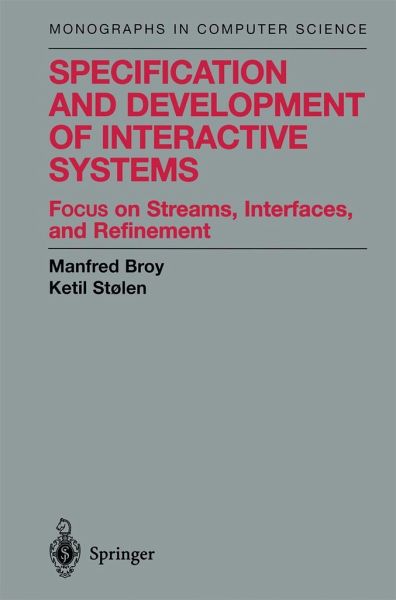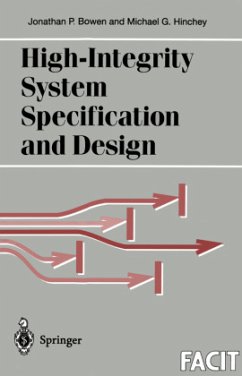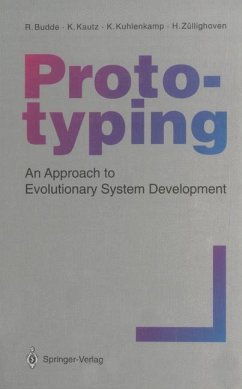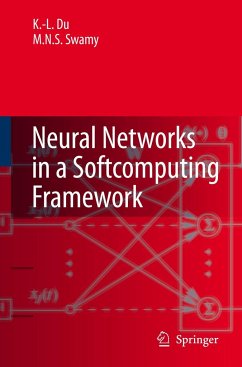
Specification and Development of Interactive Systems
Focus on Streams, Interfaces, and Refinement
Versandkostenfrei!
Versandfertig in über 4 Wochen
52,99 €
inkl. MwSt.
Weitere Ausgaben:

PAYBACK Punkte
26 °P sammeln!
Today's distributed systems are characterized by interactions, often complex, between many different hardware/software components cooperating and exchanging information. To reduce the complexity of the development of interactive systems, experts employ descriptions, or specifications, of a given system's behavior and/or structure. This book provides a mathematical and logical foundation for the specification and development of interactive systems based on a model that describes systems in terms of their input/output behavior. Based on the model, the authors build a basic method, called FOCUS, that enables interactive systems to be described by characterizing their histories of message interaction. The book progresses from an introduction and guided tour of FOCUS through streams, specifications and their properties, and behavioral, interface, and conditional refinements.
This book presents a fundamental mathematical and logical approach to soft ware and systems engineering. Considering the large number of books de scribing mathematical approaches to program development, it is important to explain what we consider to be the specific contribution of our book, to identify our goals, and to characterize our intended target audience. Most books dealing with the mathematics and logics of programming and system development are mainly devoted to programming in the small. This is in contrast to our book where the emphasis is on modular system development with the help of component specifications with precisely identified interfaces and refinement concepts. Our book aims at systems development carried out in a systematic way, based on a clear mathematical theory. We do not claim that this book presents a full-blown engineering method. In fact, this is certainly not a book for the application-driven software engi neer looking for a practical method for system development in an industrial context. It is much rather a book for the computer scientist and the scientifi cally interested engineer who looks for basic principles of system development and, moreover, its mathematical foundations. It is also a book for method builders interested in a proper mathematical foundation on which they can build a practical development method and industrial-strength support tools.














